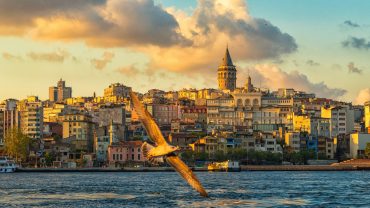Gori (Georgian: გორი [ɡɔri]) is a city in eastern Georgia, which serves as the regional capital of Shida Kartli and the centre of the homonymous administrative district. The name is from Georgian gora (გორა), that is, “heap”, or “hill”.
A settlement known here from the Hellenistic period, with the fortress built at least in 7th century, it received a town status in the 12th century. Gori was an important military stronghold in the Middle Ages and maintains a strategic importance due to its location on the principal highway connecting eastern and western parts of Georgia. In the course of its history, Gori has been invaded by the armies of regional powers several times. The city was occupied by Russian troops during the 2008 Russo–Georgian War.
Gori is also known as the birthplace of the Soviet leader Joseph Stalin, ballistic missile designer Alexander Nadiradze and philosopher Merab Mamardashvili.
Gori is located 86 kilometers (53 mi) west of Georgia’s capital Tbilisi, at the confluence of the rivers Mtkvari and Greater Liakhvi, 588 meters (1,929 ft) above sea level. The climate is humid continental, transitional from moderately warm steppe to moderately humid. Summer is usually hot. The average annual temperature is 11.2 °C (52.2 °F), minimal in January (−0.4 °C or 31.3 °F) and maximal in July and August (22.1 °C or 71.8 °F). The maximum precipitation falls in May (76 mm or 3.0 in) and minimum in February (34 mm or 1.3 in). Precipitation here averages 603 mm.
Gori and its environs house several notable cultural and historical landmarks. Although for many foreigners Gori is principally known as the birthplace of Joseph Stalin, in Georgian historical memory the city has long been associated with its citadel, the Gori Fortress, which is built on a cliffy hill overlooking the central part of the modern city. On another hill stands the 18th century St. George’s church of Gorijvari, a popular place of pilgrimage. The famous ancient rock-hewn town of Uplistsikhe and the 7th century Ateni Sioni Church are located not far from Gori.
Stalin’s association with the city is emphasized by the Joseph Stalin Museum in downtown Gori and, until recently, the Stalin monument in front of the Gori City Hall, one of the few such monuments to survive Nikita Khrushchev’s de-Stalinization program. The monument was a source of controversy in a newly independent Georgia in the 1990s, but for several years the post-communist government acceded to the Gori citizens’ request and left the statue untouched. It was ultimately removed on June 25, 2010. However, on 20 December 2012, the municipal assembly of Gori voted to reinstate the monument.





Comment (0)